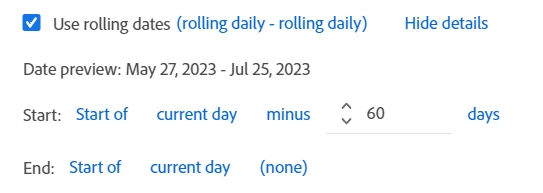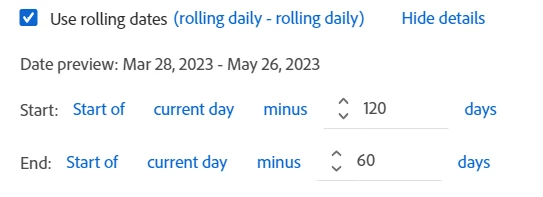Complicated Segment Question
I believe what I'm trying to accomplish is possible, but I'm having trouble setting it up in Workspace. What I want is for the segment to look back from today minus 60 through 120 days to identify a population of customers that had a specific payment method. Once the population is identified, I want to look back the past 60 days on that same population to see how it has fared in the last 60-days. The tricky part is identifying the population in one date range (minus 60-120 days from today) and then showing metrics for that population in another date range (minus 1-60 days from today) within the same segment.




